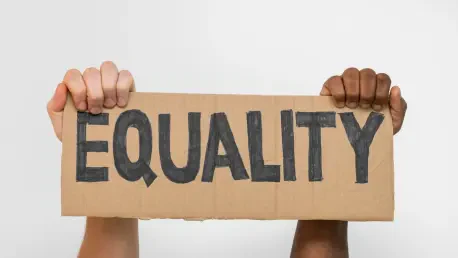In a pivotal House hearing, a dispute between Rep. Summer Lee and Education Secretary Linda McMahon has raised pressing questions about educational policies and their implications for racial equality. At the core of the debate is a directive from the Department of Education mandating schools to confirm they do not implement diversity, equity, and inclusion (DEI) measures, under the threat of losing federal funding. This requirement has sparked concerns reminiscent of the discriminatory practices seen during the Jim Crow era.
Examination of Racial Concerns in Education Policy
The heated exchange between Lee and McMahon during the hearing underscores the growing tensions regarding educational directives ostensibly affecting marginalized communities. Rep. Lee argued that the department’s current stance could revive patterns of racial discrimination, stoking fears of a resurgence in exclusionary practices. Her comparison to the post-Civil War South’s “Lost Cause” narrative highlights anxieties about historical reinterpretation and the potential erosion of progress toward racial equality. Secretary McMahon defended the policy by stating that, as of yet, no school has suffered funding penalties, with judicial interventions temporarily blocking the directive’s enforcement. The hearing has become a significant focus, bringing to light the Democratic Party’s frustration with the administration’s approach to educational content and departmental operations.
Highlights of the Heated Exchange
Key moments from the hearing showcased intense exchanges as lawmakers scrutinized the directive’s impact on marginalized student populations. Rep. Lee’s concerns were met with a robust defense from Secretary McMahon, who contested claims of revived racial discrimination. The debate also explored the broader implications of educational content, especially regarding the teaching of African American history and major events like the Tulsa Race Massacre. Questions regarding the absence of positions or direction about important historical narratives raised alarms among observers concerned about their impact on students’ understanding of race relations.
The hearing further featured comprehensive discussions among expert panelists, who analyzed how the policy and its implications might influence educational content. Participants debated whether cutting DEI measures could affect students’ grasp of historical and contemporary social dynamics, potentially leading to a skewed perception of America’s racial history and present. Audience engagement was notably high, suggesting widespread concern over these pressing issues, with reactions indicating increased public scrutiny.
Legislative Developments and Future Implications
Throughout the hearing, the absence of technological solutions was noteworthy, but legislative innovations were at the forefront of discussions. The hearing illuminated emerging moves that could redefine educational standards, calling attention to long-term policy shifts. Lawmakers pointed to potential legislative actions that might address or mitigate perceived inequities, signaling a critical juncture in educational policy development. The discussions hinted at extended debates that could shape future standards, aiming to achieve a balance between historical truth and inclusivity.
In hindsight, the House hearing exhibited significant interest in the potential long-term impact of opposing priorities on educational policy. As debates continue, the discourse surrounding DEI measures and educational content remains crucial in considering future steps. The event highlighted the importance of considering diverse perspectives in policy development to ensure equitable and comprehensive education for all students. This pivotal discussion serves as a reminder of the current complexities in education policy, paving the way for possible solutions and progress in achieving racial equality within educational systems.









